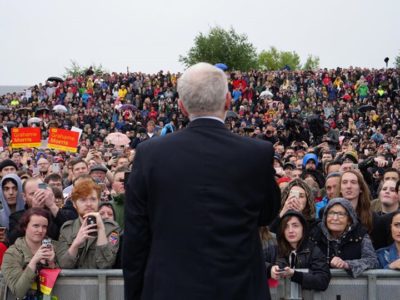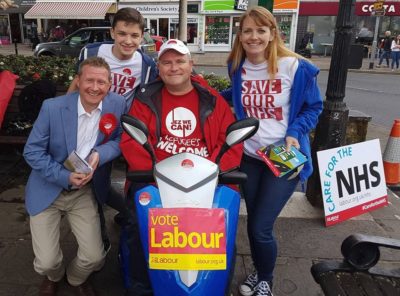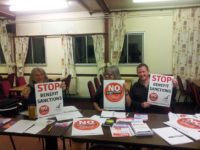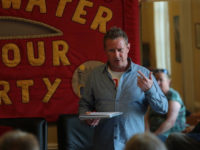
So polling day approaches – and as usual the idea of tactical voting rears its head. People say we must vote locally in the best way to beat the Conservatives. A website that advises on tactical voting points out that Labour came ahead of the Liberal Democrats in Bridgwater and West Somerset in 2015, so the tactical vote here is a Labour vote. Case closed, you might think. But I’m going to argue that it’s not as simple as that. I think tactical voting is a mistake. I think people in seats where the Lib Dems are in second place should also vote Labour – and I’m going to try to explain why.
In the first place, you just don’t know what’s going to happen. In Bridgwater and West Somerset the facts are that Labour came ahead of the Lib Dems in 2005 and 2015. They beat us in 2001 and 2010. Why? Who knows? And no-one knows what’s going to happen this time, either.
Tactical voting is a one way street

I can also never quite rid myself of the feeling that tactical voting is a one-way street. Socialists are expected to vote liberal, but the liberals can never quite hold their noses for long enough to vote for socialism. People will keep saying “I’m voting Lib Dem to get rid of Liddell-Grainger” and then just blank you when you tell them that Labour are better placed to do that.
An anecdote here: in the run up to the 2015 election, West Somerset Labour Party played an active and vociferous part in opposing the badger cull and the way it was policed. During the campaign, I went to a certain village in West Somerset to deliver some Labour animal rights manifestos to a leader of the anti-cull movement. She was visibly embarrassed and an awkward conversation ensued, which ended with her saying that “the system is corrupt” and that she was going to vote Lib Dem – “tactically.” This despite the fact that Lib Dem ministers and the local Lib Dem candidate backed the cull.
Lib Dems aren’t really ‘an alternative’

Further examples abound, of course. I think that if – like Billy Bragg – I had voted for the Lib Dems in 2010 the thing that would have made me cringe most was the spectacle of Vince Cable shamefacedly privatising Royal Mail.
But these cases apart, I think there are deeper reasons to vote for what you believe in and not to try to make a game out of the system. And the phrase “what you believe in” is the key. We all think society needs to change. But changing society is a marathon, not a sprint. .
I first became active in politics in the mid 1980s in London. The rights of gay people and people from ethnic minorities were at the forefront of public debate. Those who argued – for example – that the police were institutionally racist or that the age of consent for gay sex should be lowered to 16 were vilified as the Loony Left. In the end, though, we prevailed. By sticking to our beliefs.
Stick to your Beliefs

There’s a parallel here with our opponents in UKIP. For decades, the people who thought we should get out of the EU were regarded as a lunatic fringe. The anti-European movement was portrayed almost exclusively in terms of its nuisance value to the Conservatives. But in the end, the anti-Europeans prevailed. By sticking to their beliefs.
The trick is to change the political landscape so that ideas once thought to be beyond the fringe become the mainstream. But it takes a long time and short-term tactics are a diversion.
So what do you believe? If you believe that society should be run for the many not the few, vote Labour. If you believe public services should be held in common ownership for the common good, vote Labour. If you believe in equality, diversity and tolerance, vote Labour. Wherever you are.


















